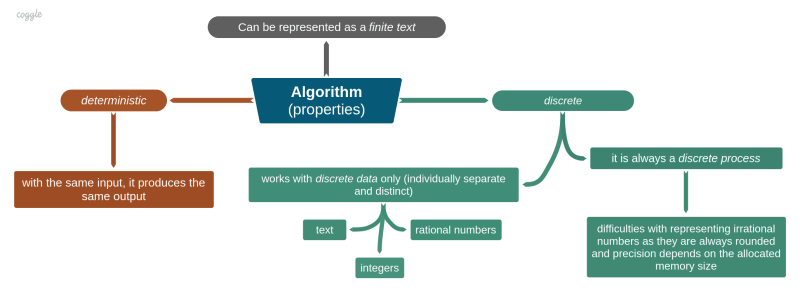Despite the obvious expectation to find some sort of a definition of the term "Algorithm" here, I have to disappoint you, as there isn't any general or well-accepted definition. But, it's not a unique situation! Take mathematics, for example. Although there are plenty of different "definitions" that can be found in the literature, they all are just oversimplified attempts to explain what an algorithm really means.
In general, an algorithm is a way of describing the logic. And that's why it's so hard to cover all possible forms of it in terms of common rules or definitions. Most prominent mathematicians began seriously thinking about computability and what can be computed at the beginning of the 20th century. But it was so hard to generalize all the cases that eventually they had to limit the consideration by functions defined only on the set of Natural numbers.
The most famous works were done by Alan Turing (related to algorithms) andAlonzo Church (related to computable functions). Alan Turing came up with the thesis which basically says, that if a function is computable then it has an algorithm, and if so, then it can be implemented on the Turing machine (TM).In other words, Turing's thesis makes it clear what can be computed and what is needed to get computed.
Turing machine is an abstract system that has a finite set of states and symbols, a few certain operations, and an endless tape (consisted of cells). The behavior of a TM is controlled by a program that defines a state transition and a next tape movement depending on a symbol that was read. Although, there is no real-world analog of the TM as it is unlikely possible to have infinite memory. So, to get it more realistic, for a real analog of TM, it means two things:
- to have enough memory, at least, as much as needed (analog of the tape)
- to have a conditional branching, some sort of if/else and goto statements(analog of state transitions)
All algorithms share the same properties:
- deterministic (produces the same result for the same input)
- discrete (works with discrete data, like texts, integers, rational numbers)
- finite (represented by a finite text)








Top comments (0)